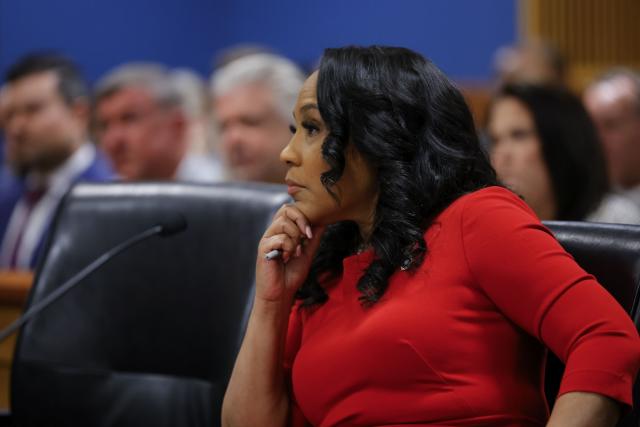Former Colorado County Clerk Sentenced to 9 Years for Election System Breach
Tina Peters, the former Mesa County Clerk in Colorado, has been sentenced to nine years in prison after being convicted on multiple charges relating to unauthorized access to election data.
Peters was found guilty of various charges stemming from her involvement in a scheme that allowed unauthorized access to voting data in Mesa County and received nearly a decade in prison as a result, according to the Washington Examiner.
The case involving Peters revolved around her decision to give access to a man with connections to MyPillow CEO Mike Lindell, enabling him to access Mesa County’s election systems.
According to the court, Peters misled fellow county officials regarding the man’s identity, facilitating the breach. This breach became a focal point of the investigation, which led to her conviction.
The Colorado Court Finds Peters Guilty
In August, a jury in a Colorado district court found Peters guilty on several charges. These included three counts of attempting to influence a public servant, conspiracy to commit criminal impersonation, first-degree official misconduct, and failing to comply with duties outlined by the secretary of state. The charges highlighted her abuse of her public office and the subsequent attempts to conceal the unauthorized actions.
District Judge Matthew Barrett, who presided over the case, sentenced Peters and was particularly vocal in his condemnation of her actions. During the sentencing, he described her as "defiant" and "no hero," adding, "You abused your position and you’re a charlatan."
Peters was acquitted of several charges, including identity fraud and criminal impersonation. However, the gravity of the other convictions resulted in her nine-year sentence.
Peters Maintains Innocence Throughout Trial
Throughout the trial, Peters maintained her innocence, claiming her actions were driven by her commitment to serve the people of Mesa County. "I only wanted to serve the people of Mesa County," Peters said during the proceedings. Her defense team argued that she believed her actions were in the public’s best interest.
However, the court and prosecutors viewed her actions differently. Colorado Attorney General Phil Weiser noted that Peters' actions represented a severe breach of trust. "Today’s verdict is a warning to others that they will face serious consequences if they attempt to illegally tamper with our voting processes or election systems," Weiser said in a statement after the sentencing.
Peters Plans to Appeal the Verdict
Following her sentencing, Peters remained steadfast in her belief that she had done nothing wrong. In a message to the Washington Examiner, she vowed to appeal the state case. This promise of an appeal suggests that Peters intends to continue fighting the charges despite her conviction and the significant prison sentence handed down by the court.
Judge Barrett, however, appeared unconvinced by Peters' declarations of innocence, stating during sentencing that he believed she would "do it all over again" if given the chance. His words highlighted the seriousness of Peters’ actions and the need for accountability in protecting the integrity of election systems.
Colorado Attorney General Defends Election Integrity
Weiser emphasized his belief that the case served as a critical moment for upholding election integrity in the state. He underscored that Colorado’s election system is among the most secure in the nation, and any attempts to undermine it would face severe repercussions.
Weiser pointed out that Peters’ actions violated the trust placed in her as a public official. "In fact, Colorado’s election system is the gold standard of the nation," Weiser stated, reaffirming the state's commitment to maintaining safe and fair elections. He assured the public that his office would continue to take strong actions against anyone who attempted to compromise the integrity of the electoral process.
The Legal Fallout and Broader Implications
Peters' case has drawn significant attention due to the involvement of a figure linked to Mike Lindell, a prominent figure in election fraud conspiracy theories. While Peters’ defense argued that her motives were to protect election transparency, the court viewed her actions as a breach of public trust and a violation of Colorado's secure election processes.
Peters' conviction and sentencing serve as a reminder of the importance of adhering to legal protocols and maintaining transparency in election oversight. The case sends a clear message that election tampering, in any form, will not be tolerated.
Conclusion
Tina Peters, a former Mesa County Clerk, was sentenced to nine years in prison after being found guilty on multiple charges related to unauthorized access to election data.
The conviction came after Peters allowed an unauthorized individual to breach the county’s election systems, deceiving fellow officials in the process.
Despite maintaining her innocence, Peters’ actions were condemned by both the court and state officials. District Judge Matthew Barrett delivered a stern rebuke, while Colorado Attorney General Phil Weiser emphasized the state’s commitment to election integrity.
Peters has vowed to appeal the ruling, ensuring the case will continue to be a point of interest in the broader conversation about election security.





